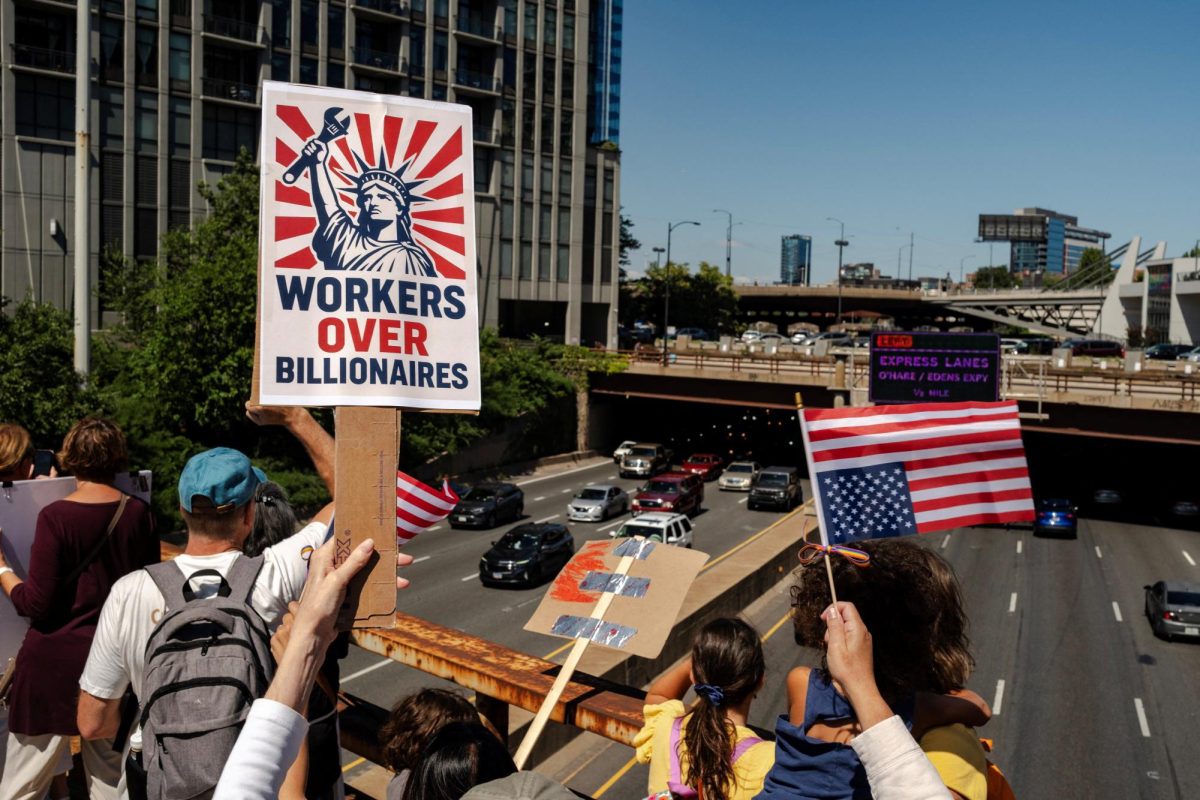
Jim Vondruska
A Workers Over Billionaires protest on Labor Day in Chicago, Illinois.
In recent months, the AFL-CIO federation of labor unions has led thousands of “Workers Over Billionaires” protests across the country. In the event description for the San Francisco Labor Day rally, organizers asserted that billionaires “continue to wage a war on working people,” calling upon protestors to show that “the billionaire’s time is up.” In this issue’s A Fuller Picture column, we looked into the ongoing political and economic impacts of billionaires that have caused such furor.
Recently, the U.S. has witnessed a rise in billionaire support on both sides of the aisle. In the 2024 election, billionaire donations reached a historical high: $2.6 billion of $24 billion in federal election contributions came from just 100 billionaire families. This financial power, according to critics, has weakened government credibility and degraded democratic values.
Elon Musk was by far the largest donor, spending $291 million to support Republican candidates. As a result, Musk was then appointed as the head of the Department of Government Efficiency (DOGE). DOGE repeatedly targeted the Internal Revenue Service (IRS) and Consumer Financial Protection Bureau (CFPB)—moves that have made tax evasion easier for billionaires.
Beyond concerns of political manipulation, billionaires and their trillion-dollar companies are often embroiled in legal battles over workers’ rights and prioritizing corporate gain.
In California, Amazon faces legal trouble with the National Labor Relations Board (NLRB). The NLRB argues that Amazon must be a formal “joint employer” of its currently subcontracted delivery drivers. The labor organization’s attorneys claim that Amazon dictates the drivers’ training, constantly monitors them, pays insufficient wages, and fails to protect drivers from intense heat—in alleged violation of federal labor laws.
Musk’s Tesla has also been accused of illegal interference in union organization, where all unionization efforts have been unsuccessful. As of January 2025, the NLRB has 24 open investigations into Musk’s companies, and it is also investigating alleged surveillance of X employees after Musk acquired the company in 2022.
At the same time, billionaires like Musk are, by and large, entrepreneurs of inventions and enterprises that have generated several positive impacts—for social good and financial profit—for everyday people around the world.
For example, Amazon has enabled businesses of all sizes to sell their products online, and many of its 310 million active users benefit from the increased accessibility of daily necessities at a range of price points. After Musk led Tesla to announce the world’s first luxury electric car, the Tesla Roadster, in 2008, zero-emission and eco-friendly vehicles became mainstream around the world.
Globally, nonprofits have been able to generate over $5 billion through the platform’s fundraising tools, according to Meta.
Because billionaires’ successes often stem from “public investment” and financial support, according to an essay by Professors Jessica Flanigan and Christopher Freiman, citizens can also hold billionaires more immediately accountable than their periodically elected governments.
Evidently, some billionaires are conscious of this pressure and responsibility, with Bill & Melinda Gates Foundation, The Giving Pledge, and Bloomberg Philanthropies being some of the largest of their kind.
Ultimately, billionaires present a moral paradox: being an active part of unfair economic systems while providing large individual support to charitable causes. In trying to estimate their net value to the world, the full picture is thus in the eye of the beholder.